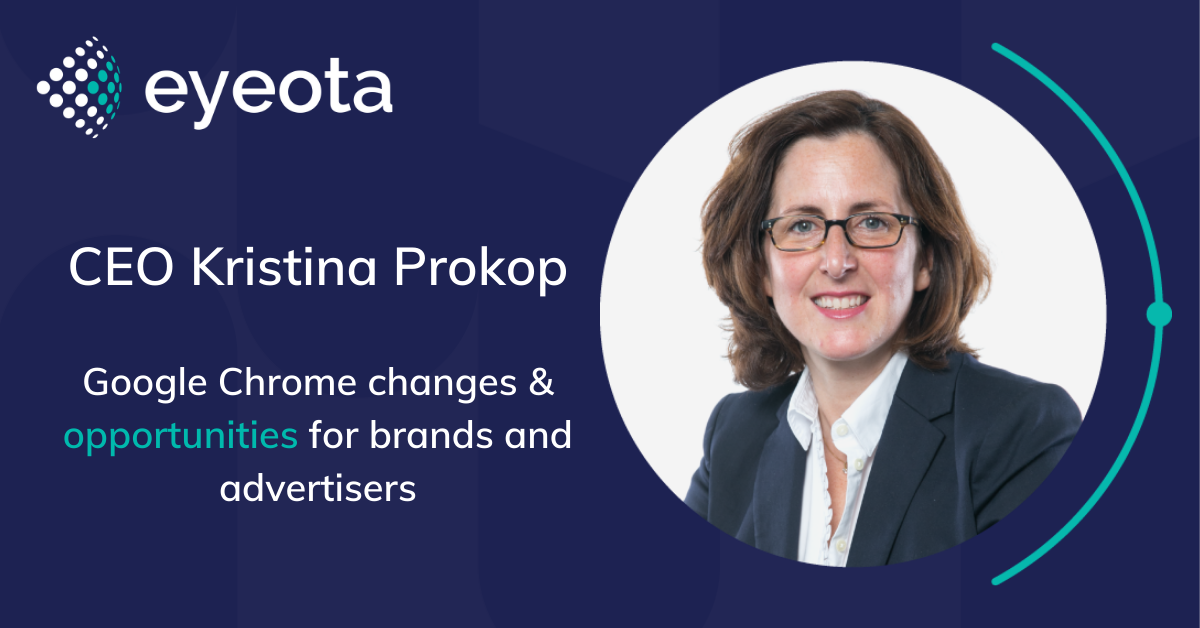Google's announcement further cements its position to lead with a transparent and privacy-first approach to advertising within its Chrome ecosystem.
Kristina Prokop, Eyeota CEO and Co-founder, outlines the impact this has on the future of cookieless digital advertising and the opportunities this brings for brands and advertisers.
Following their plans to phase out third-party cookies in Chrome by 2022, Google announced that it will not develop any alternative identifiers for tracking individual users for advertising purposes nor will they use them in their products.
What does this mean for Google?
For Google, digital privacy appears to be the ultimate goal. Their Privacy Sandbox project for the creation of “a thriving web ecosystem that is respectful of users and private by default” provides a frame for its positioning while its technology proposals for cohorts-based advertising, namely Turtledove and FLoC, are expected to accelerate from testing to real-life applications.
What does this mean for the advertising industry?
Google’s lack of participation in 1:1 deterministic targeting methodologies reiterates the fact that a single ID solution is not sustainable for the future and should prompt the industry to evaluate and test alternative methods of identity.
Along with contextual, first-party-data targeting is accepted within Google’s Privacy Sandbox. Brands and marketers will most likely look to replicate the consent and opt-in mechanics already in use by European publishers as they adopt their own privacy-led ad solutions and practices.
Furthermore, there is a real opportunity to build opt-in models that deliver a solution to engaging digital consumers in a meaningful way while providing transparency and choice, in exchange for the tools and benefits that they love.
What does this mean for Eyeota, its partners and customers?
As a provider of global data solutions, Eyeota has always operated under the premise of data interoperability enabling our customers to onboard, transform and activate data in their platform of choice. We take an agnostic approach to identity by supporting the ingestion of data based on any online ID or offline key which ensures our customers have continued access to solutions regardless of the changes within our industry. Here we outline three potential benefits for our partners and customers based on this announcement:
- We are a long-standing partner of Google and our direct connection with both Doubleclick for Publishers and DV360 means we will be one of the first players to activate audiences at scale using Google Chrome’s new methodologies.
- Moreover, Eyeota’s tried and true data onboarding practices are already based upon cohort-level methodologies. This announcement further validates that this method has longevity within the world of privacy-first digital advertising.
- Ultimately we align with Google’s belief that consumer consent and value exchange is an opportunity. Building on our success of activating privacy-safe consent-based audience solutions in Europe, we have the potential to evolve this method on a global scale through consumer-friendly and transparent tools.
We are here for you. Eyeota will continue to keep you updated on how these changes will affect you and your business. If you have any questions please reach out to our team at any time at datadesk@eyeota.com.
